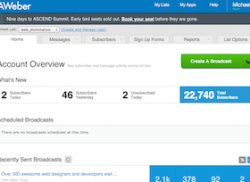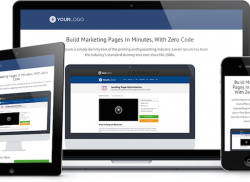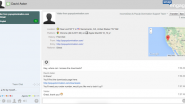10 Billion Dollar Companies that Didn’t Start with Business Plans
I’d like to put an end to the myth that you need a business plan if you want to succeed as an entrepreneur. This should do it.
Here are ten billion dollar companies or corporations that didn’t start with business plans.
 Google
Google
2014 Revenue: $65.83 Billion
Google was started as a class project by Sergey Brin and Larry Page while in graduate school at Stanford in January 1996. They simply wanted to create a better search engine that ranked websites based on their relationships to one another rather than the number of times the search term existed on the page.
Google wasn’t even a company until 32 months later when they incorporated in September 1998 so they could hire their first employee.
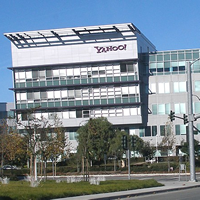 Yahoo!
Yahoo!
2014 Revenue: $4.6 Billion
Yahoo! was started as “David and Jerry’s Guide to the World Wide Web” by Jerry Yang and David Filo (also Stanford graduate students) in February 1994. Their solution to finding information on the internet was to create a directory of websites, as opposed to a searchable index of pages.
It was just two dudes creating a database of websites they found and liked.
This is a quote about the history of Yahoo! from Yahoo.com:
“Due to the torrent of traffic and enthusiastic reception Yahoo! was receiving, the founders knew they had a potential business on their hands. In March 1995, the pair incorporated the business and met with dozens of Silicon Valley venture capitalists. They eventually came across Sequoia Capital, the well-regarded firm whose most successful investments included Apple Computer, Atari, Oracle and Cisco Systems. They agreed to fund Yahoo! in April 1995 with an initial investment of nearly $2 million.”
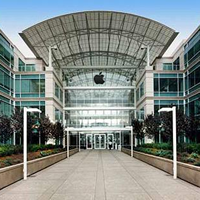 Apple
Apple
2014 Revenue: $182.35 Billion
Apple got its start in 1976 when Steve Wozniak convinced Steve Jobs to sell the Apple I Computer. So Jobs took the computer to a local computer store and the owner agreed to buy 50 of the machines at $500 apiece.
Then Jobs took the purchase order to a parts distributor to order the parts they needed and proceeded to build 50 computers in 30 days. Just in time to get paid by the retailer and pay their distributor.
Apple Computers started with a few simple transactions of a quality product. Not with a business plan.
 Facebook
Facebook
2014 Estimated Revenue: $12.47 Billion
As most of you probably know, Facebook was started by Mark Zuckerberg in February 2004 as a social networking site for his fellow Harvard students. They didn’t incorporate until later that summer.
Like Google and Yahoo!, it wasn’t a business so it didn’t need a business plan. It was just a promising idea that created a growing community with big potential.
 General Electric
General Electric
2014 Revenue: $148.94 Billion
General Electric was founded in 1890 by Thomas Edison as a vehicle to sell his inventions. Edison had been inventing for 14 years prior to founding the company. Some of his 1,000+ inventions included the incandescent light bulb, motion picture camera, and alkaline storage battery.
From an entrepreneurial perspective, Edison created over 1,000 products before he started his company. Maybe he could’ve benefited from a business plan. But maybe that would’ve thwarted his inventing.
This is my favorite Thomas Edison quote and an incredible lesson in entrepreneurship:
“I never perfected an invention that I did not think about in terms of the service it might give others… I find out what the world needs, then I proceed to invent.”
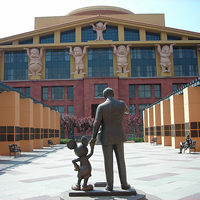 Disney
Disney
2014 Revenue: $48.81 Billion
If you read about the 10 World Famous Companies that Started in Garages, you’ll know that the world’s largest media conglomerate had humble beginnings. Walt Disney started the company with his brother Roy as a creative studio with a character named Alice.
They started filming the Alice Comedies, which was part of Alice’s Wonderland, and sold their short films to a distributor.
No business plan required.
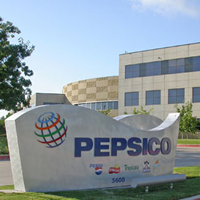 Pepsi
Pepsi
2014 Revenue: $66.68 Billion
What is now PepsiCo started back in 1898 when a pharmacist and drugstore owner named Caleb Bradham invented a fountain drink he called “Brad’s Drink.” He sold the concoction in his store, so he was his own distributor.
Pepsi got its big break in 1909 when automobile racer, Barney Oldfield, endorsed the drink as, “a bully drink…refreshing, invigorating, a fine bracer before a race.”
It took 11 years to hit their big break. Maybe a business plan would’ve expedited that process, but I believe it’s best to let businesses grow naturally rather than trying to rush things.
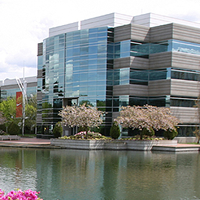 Nike
Nike
2014 Revenue: $27.79 Billion
Nike’s roots started in 1962 when its company’s founder, Philip Knight, graduated from the University of Oregon and decided to travel across Japan. While in school, Knight was a star track athlete. During his visit to Japan, he came across Onitsuka Tiger Co and offered to import their shoes so he could resell them in the US.
To satisfy the Japanese company’s request, he filed a company and named it Blue Ribbon Sports. They didn’t change their name to Nike, Inc. until 1978.
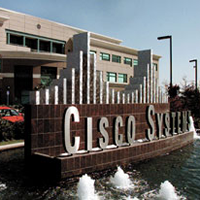 Cisco
Cisco
2014 Revenue: $47.14 Billion
Cisco started in 1984 when the manager of the Stanford computer science laboratory, Leonard Bosack, wanted to communicate with his wife, Sandra Lerner, from across campus. Bosack devised a way to connect the two local area networks which later became the inspiration for the multi-protocol router.
That year they mortgaged their house, deferred their salaries, and hired their friends so they could sell this internetworking technology. Three years later they were selling $250,000 worth of routers per month.
 Walmart
Walmart
2014 Revenue: $485.65 Billion
After working in retail stores across the country, Sam Walton opened “Walton’s Five and Dime” in Bentonville, Arkansas in 1945 with a $20,000 loan from his father-in-law and another $5,000 of his personal savings.
The first Wal-Mart Discount City store didn’t open until 17 years later in Rogers, Arkansas.
Walmart was successful because of Sam Walton’s experience and disruptive philosophy within the retail industry, not because of a business plan.
What’s the Point?
Just because many of the world’s most successful businesses didn’t start with a business plan doesn’t mean the business plan is an worthless tool. But it does prove that it’s not necessary.
If you want to start a business, start with a simple idea that can help a lot of people. Create something out of that idea and let it grow naturally.
A business plan could and probably would help, but don’t let it get in the way of creating.
"Do Not Write Another Blog Post Until You Watch This Free Video..."

Watch this free video to learn...
- How I got over 10,000,000 people to visit my websites.
- The types of blog post that got me all that traffic.
- How to get someone else to do it for you!



